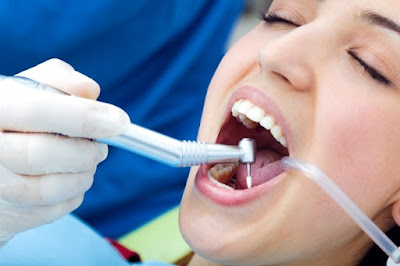Dealing with excruciating toothache lately? Maybe you need a root canal. Many people ignore this pain because they are basically denying the terrifying procedure and cost of the treatment. There is nothing to be afraid of this wonderful tooth restoration treatment. To put your concerns at ease here is a list of top things that you should know about root canals.
1.
What does it mean to get a
root canal treatment?
It is a tooth restoration
procedure that is often recommended when the tooth roots are infected.
Dentists will remove the infected pulp from the tooth roots and properly seal
the openings for oral health.
2.
How long will it take to
complete the root canal treatment?
It is one of the most
common concerns of busy people that how long does a root canal take? The
time taken is based on the severity of the infection. You may need to visit the
dentist’s office more than once to get it done.
3.
What is the cost of root
canal treatment?
The root canal cost
may vary depending on the location of the infection. For getting your molars
treated you have to pay more as compared to the front teeth.
4.
How painful is the
treatment?
During the procedure, you
will be sedated and won’t feel anything. After the anesthesia wears out you
might experience slight discomfort for the next 24 hours, for which you can
take painkillers prescribed by the dentist.
5.
How to know if you need
root canal treatment?
Apart from a toothache,
swelling and puss-filled gums are common signs. Besides, you may notice slight
discoloration on the tooth which needs root canal treatment.
6.
Is it okay to feel pain
for a prolonged duration?
Slight soreness or pain is
absolutely normal. After getting your tooth roots cleaned, the peak discomfort
will be experienced for the next 12-24 hours.
7.
What happens after the
treatment procedure is done?
Until the anesthesia wears
off, you should avoid chewing or biting. After that, you can continue your
normal activities along with regular brushing and flossing.
8.
Can the infection reoccur
after the treatment?
You should go on follow-up
visits so that the dentist can make sure that there is no sign of infection.
9. What is root canal
recovery period?
You will be back to your
normal activities within a week.
10. From where should I get my root canal treated?
The treatment involves
specialty diagnosis, so make sure you find a trusted endodontist for it.
11. Is root canal worth it?
When the infection gets
severe you may lose the tooth, so it is best to get timely intervention.
12. What are the alternatives to root canal?
After a dentist’s consultation, you can think about alternatives like dentures, bridges, or dental implants.
The unbearable pain of infected roots can
impact the quality of your life. So why wait anymore? To know more about what is a root canal, and is it the right choice for you, consult Dr. Heidary Family Dentistry
which is a trusted family dental clinic.


.jpg)

